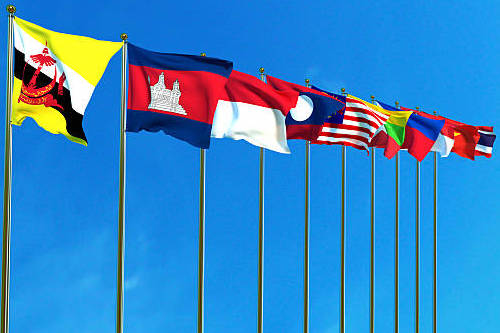 In a letter sent today to ASEAN Heads of State, the ICJ and other leading international human rights organizations called for the postponement of the adoption of the ASEAN Human Rights Declaration.
In a letter sent today to ASEAN Heads of State, the ICJ and other leading international human rights organizations called for the postponement of the adoption of the ASEAN Human Rights Declaration.
The groups are pointing out that in its current form, the Declaration falls short of existing international human rights standards and risks creating a sub-standard level of human rights protection in the region.
Of particular concern are the General Principles in the Declaration. Under General Principles 6,7, and 8 of the current draft, enjoyment of rights is to be “balanced with the performance of duties”, subjected to “national and regional contexts” and to considerations of “different cultural, religious and historical backgrounds.” Also, all the rights in the Declaration may be restricted on a wide array of grounds including “national security” and “public morality”.
“The idea that all human rights are to be ‘balanced’ against individual responsibilities contradicts the very idea of human rights agreed upon in the 1948 Universal Declaration of Human Rights, which was affirmed by all States, including ASEAN Member States, in 1993 in the Vienna Declaration and Programme of Action,” said Wilder Tayler, Secretary General of the International Commission of Jurists. “Balancing human rights with responsibilities turns on its head the entire raison d’être of human rights,” he further emphasized.
Furthermore, international law prohibits governments from derogating under any circumstances from a broad set of rights. Other rights can only be subject to specific, narrow, and clearly defined restrictions in certain circumstances. Finally, international law imposes on all ASEAN Member States the duty, regardless of their political, economic and cultural systems, to respect and protect all human rights and fundamental freedoms.
“It is clear that in its current form the Declaration purports to make a significant and worrying departure from existing international human rights law and standards, including those found in other regional human rights instruments, in Europe, the Americas, and Africa,” said Souhayr Belhassen, President of the International Federation for Human Rights.
“Unless significant changes are made to the text, ASEAN will be adopting in 2012 a Human Rights Declaration that grants ASEAN Member States additional powers to violate human rights instead of providing the region’s people with additional safeguards against such violations”, said Michael Bochenek, Director of Amnesty International’s Law and Policy Programme.
The organizations strongly urged in their letter that ASEAN leaders should return the draft text to the ASEAN Intergovernmental Commission on Human Rights and send clear instructions to redraft it, in a transparent, deliberate and inclusive process, in full consultation with all stakeholders, so that it does not fall below internationally recognized human rights law and standards.
Contact:
Emerlynne Gil, International Legal Advisor, International Commission of Jurists, Bangkok Office; m: +66 840923575, email: emerlynne.gil@icj.org

